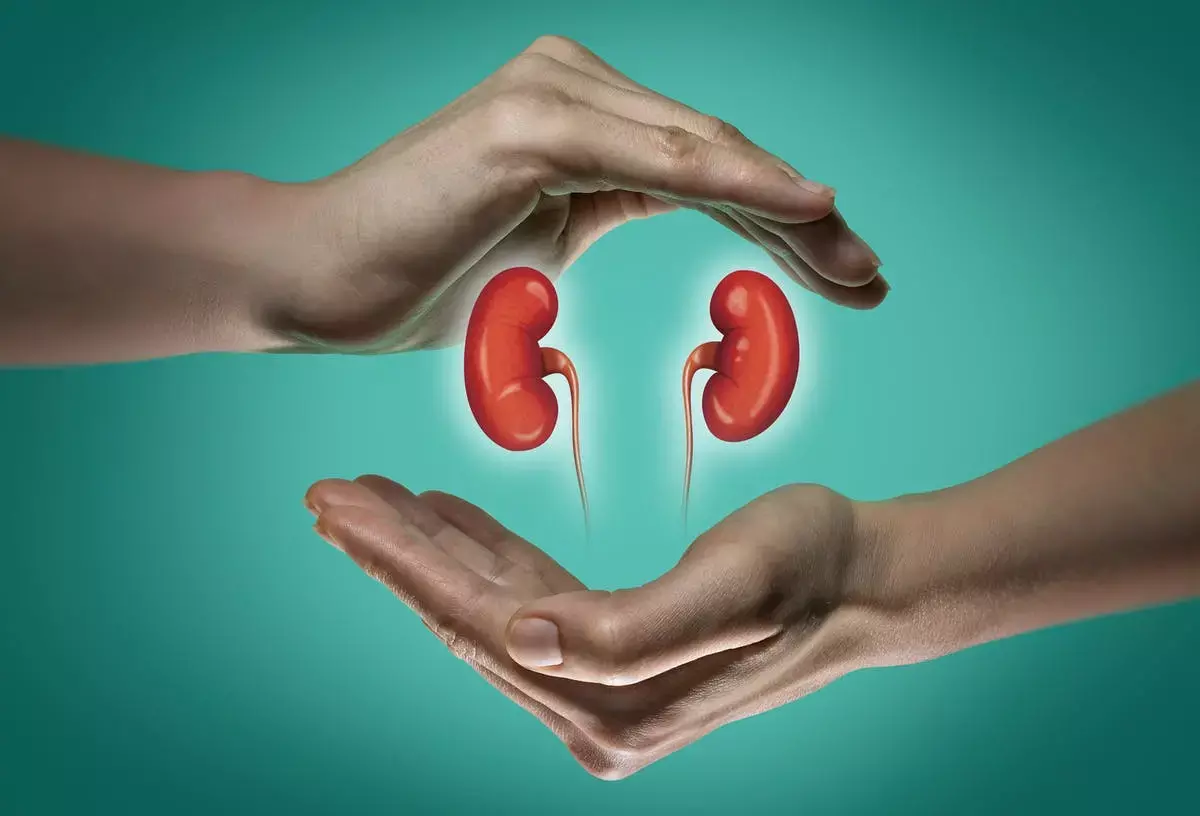- Home
- Medical news & Guidelines
- Anesthesiology
- Cardiology and CTVS
- Critical Care
- Dentistry
- Dermatology
- Diabetes and Endocrinology
- ENT
- Gastroenterology
- Medicine
- Nephrology
- Neurology
- Obstretics-Gynaecology
- Oncology
- Ophthalmology
- Orthopaedics
- Pediatrics-Neonatology
- Psychiatry
- Pulmonology
- Radiology
- Surgery
- Urology
- Laboratory Medicine
- Diet
- Nursing
- Paramedical
- Physiotherapy
- Health news
- Fact Check
- Bone Health Fact Check
- Brain Health Fact Check
- Cancer Related Fact Check
- Child Care Fact Check
- Dental and oral health fact check
- Diabetes and metabolic health fact check
- Diet and Nutrition Fact Check
- Eye and ENT Care Fact Check
- Fitness fact check
- Gut health fact check
- Heart health fact check
- Kidney health fact check
- Medical education fact check
- Men's health fact check
- Respiratory fact check
- Skin and hair care fact check
- Vaccine and Immunization fact check
- Women's health fact check
- AYUSH
- State News
- Andaman and Nicobar Islands
- Andhra Pradesh
- Arunachal Pradesh
- Assam
- Bihar
- Chandigarh
- Chattisgarh
- Dadra and Nagar Haveli
- Daman and Diu
- Delhi
- Goa
- Gujarat
- Haryana
- Himachal Pradesh
- Jammu & Kashmir
- Jharkhand
- Karnataka
- Kerala
- Ladakh
- Lakshadweep
- Madhya Pradesh
- Maharashtra
- Manipur
- Meghalaya
- Mizoram
- Nagaland
- Odisha
- Puducherry
- Punjab
- Rajasthan
- Sikkim
- Tamil Nadu
- Telangana
- Tripura
- Uttar Pradesh
- Uttrakhand
- West Bengal
- Medical Education
- Industry
Diuretics use tied to risk of post-transplantation diabetes in kidney transplant recipients: Study

Netherlands: A recent study showed that overall, diuretics are associated with an increased risk of developing post-transplantation diabetes mellitus (PTDM) in kidney transplant recipients (KTRs). The association was seen both for thiazide and loop diuretics. The study was published in the journal Nephrology Dialysis Transplantation on 29 January 2022.
PTDM is seen as a major clinical problem in recipients of kidney transplants. Diuretic-induced hyperglycemia and diabetes is shown to be prevalent in the general population. Sara Sokooti, University of Groningen, Groningen, The Netherlands, and colleagues therefore aimed to investigate if diuretics also increase PTDM risk in KTRs.
For this purpose, the researchers included 486 stable outpatient KTRs (with a functioning graft ≥ 1 year) without diabetes from a prospective cohort study. Based on their medication use verified by medical records, the participants were classified as diuretic users and non-users.
The study revealed the following findings:
- At current baseline study, 168 (35%) KTRs used a diuretic (thiazide, n = 74; loop diuretic, n = 76; others, n = 18) and 318 KTRs did not use a diuretic.
- After 5.2 years of follow up, 54 (11%) KTRs developed PTDM.
- In Cox regression analyses, diuretic use was associated with incident PTDM, independent of age, sex, fasting plasma glucose (FPG), and HbA1c (hazard ratio[HR] 3.28).
- Further adjustment for potential confounders, including lifestyle, family history of cardiovascular disease, use of other medication, kidney function, transplantation-specific parameters, BMI, lipids, and blood pressure did not materially change the association.
- In Cox regression analyses, both thiazide and loop diuretics associated with the development of PTDM, independent of age, sex, FPG, and HbA1c ([HR 2.70], and [HR 5.08], respectively).
To conclude, the study showed overall, diuretics overall are associated with increased risk of developing PTDM in KTRs, independent of established risk factors for the development of PTDM. The association was present both for thiazide and loop diuretics.
Reference:
Sara Sokooti, Frank Klont, Sok Cin Tye, Daan Kremer, Rianne M Douwes, Gérard Hopfgartner, Robin P F Dullaart, Hiddo J L Heerspink, Stephan J L Bakker, Association of diuretic use with increased risk for long-term post-transplantation diabetes mellitus in kidney transplant recipients, Nephrology Dialysis Transplantation, 2022;, gfac012, https://doi.org/10.1093/ndt/gfac012
Dr Kamal Kant Kohli-MBBS, DTCD- a chest specialist with more than 30 years of practice and a flair for writing clinical articles, Dr Kamal Kant Kohli joined Medical Dialogues as a Chief Editor of Medical News. Besides writing articles, as an editor, he proofreads and verifies all the medical content published on Medical Dialogues including those coming from journals, studies,medical conferences,guidelines etc. Email: drkohli@medicaldialogues.in. Contact no. 011-43720751


